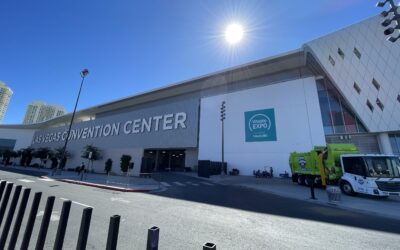We always say that our software solution, Waste and Recycling One, standardises, integrates, simplifies and automates all waste and recycling processes. But what do we mean by, ‘integration’? Why do we think it is so crucial to the successfully running of a waste and recycling business?
Integration: What it Means
Integration means a connected organisation, one in which data and processes provide accuracy, control and automation of tasks. There is a seamless flow of information to effectively plan, execute and adapt.
For any business wishing to be as efficient as possible, integration is key.
Integration provides:
- Instant and complete visibility across all your waste transport and recycling operations
- One true data source, so you can add on more modules and apps without compromising accuracy or consistency
- The automatic generation of trustworthy Management Information, at the depth of level required at the time it’s required
- Linked business processes between applications or modules designed to work with each other, eradicating the need for manual intervention and fixes that have an impact on accuracy like spreadsheets.
- In effect, this means you update one thing in one place, and everything else automatically follows on. Integration provides real time information, accuracy, lowers costs, increases profitability, beats your competitors and allows you to add new technology easily for even greater efficiencies.
What Do You Have When You Don’t Have Integration?
(Clue: It really isn’t a joke)
Most waste and recycling businesses have grown over many years. They may have added software (and manual) solutions over the years, as a need arises. This means they now have multiple software applications using different data sources which aren’t engineered to allow data, process and workflow to seamlessly run throughout the organisation.
This results in multiple systems, the likelihood of manual intervention, key data held in spreadsheets, conflicts in transactional data, untrustworthy reporting and interfaces that add an additional application layer. The result, lost profits, high costs and customer churn.
Even very small waste and recycling businesses find it difficult to manage on multiple software applications; why? Because the waste and recycling business model is complex. The problem is exacerbated as you grow as operations get even more complex
Integration allows waste and recycling organisations to move from ad-hoc data management, processes and reporting to enlightened and systematic understanding of everything in your business.
Where Are You on the Route to Integration?
There is a journey that most established organisations take before they decide to adopt integration.

An interface is where two or more separate software products communicate under limited capacity. Data is maintained in multiple locations; requiring more administration. A fully integrated system means that the products are one.
There are some inherent problems with interfaces because:
- Data is maintained in multiple locations; thus, requiring more administration. A fully integrated system means that the products are one.
- Interfaces don’t allow you to sync data between the systems in real-time. For some companies, this isn’t an issue as they only need time record data to sync with payroll twice a month, right before payroll is due for example. For others, this may be an issue. In some interface solutions, you can choose how often information is synchronised between systems (once a week, twice a month, once a month, etc.)
- Interfaced systems don’t share the same database, so an interface often requires maintaining “mappings” between systems. This is the process of matching codes from one system with codes from the other system, like job codes in HR with job codes in your scheduling solution. It can take time and might involve manual intervention, which is costly and can lead to unintended errors.
The Benefits of Adopting Integration
The key business benefits of integration are:
- Your business is always working from and able to report on accurate, up-to-date data, so management decisions are made with the full facts to hand
- Business processes are faster as there are no synchronisation issues since all the software solutions share the same database
- Since integrated solutions share the same database, there is no process of mapping codes between systems. All the changes apply automatically in each part of the system.
- In short, integration makes a business more efficient, effective and profitable.
Integration is at the heart of the world’s most advanced waste management software.
If you’re putting together the Business Case for Integration in your Waste and Recycling business and want to find out more, then please get in touch.
This article first appeared on Linked in at: https://www.linkedin.com/pulse/waste-recycling-one-integration-key-companies-success-isb-global






